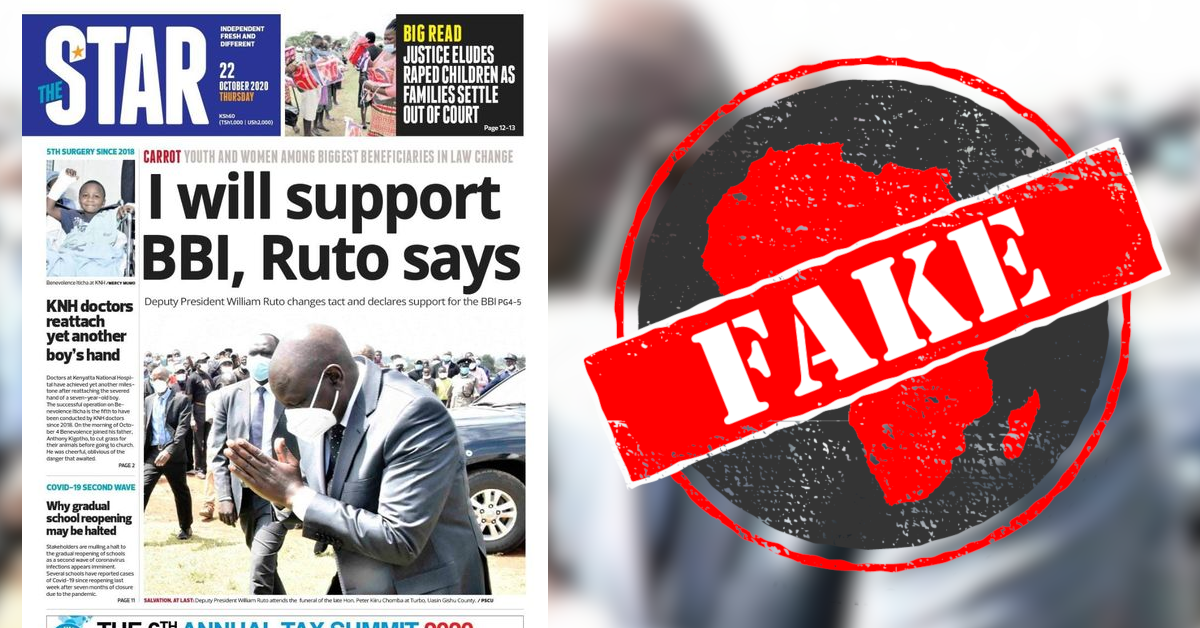A subhead adds “Deputy President William Ruto changes tact and declares support for the BBI” above a photo of Ruto.
The BBI is the Building Bridges Initiative, set up after the “handshake” truce between president Uhuru Kenyatta and his opposition rival Raila Odinga in 2018. The BBI includes a taskforce to find ways of addressing political, ethnic, social and economic divisions in Kenya.
Its first report was released in October 2019. A second report was handed over to Kenyatta and Odinga on 21 October 2020.
Ruto and his allies have been critical of the report, claiming it is only meant to create positions for the political elite. The deputy president is running for the 2022 presidential elections.
The Star front page has been widely shared on Facebook. But did the paper really report that Ruto had changed his mind about the BBI? We checked.

‘Real vs fake’
The Star has posted the front page of its 22 October edition on its verified Facebook page, and it shows a very different headline.
The real headline reads: “Sweeteners in Uhuru, Raila BBI referendum deal.” The summary adds: “Taskforce recommends creation of Prime Minister and two deputies.” The photo shows Uhuru and Odinga holding a copy of the second BBI report.
The Star also posted its real front page on Twitter next to the photoshopped version, stamped “FAKE NEWS” in red.
Real VS Fake! Get the authentic copy of the star on -_> https://t.co/V97HXE26zo pic.twitter.com/ycs2Rm9Kxi
— TheStarKenya (@TheStarKenya) October 22, 2020
“Real VS Fake!” the paper tweeted. – Dancan Bwire
Republish our content for free
For publishers: what to do if your post is rated false
A fact-checker has rated your Facebook or Instagram post as “false”, “altered”, “partly false” or “missing context”. This could have serious consequences. What do you do?
Click on our guide for the steps you should follow.
Publishers guideAfrica Check teams up with Facebook
Africa Check is a partner in Meta's third-party fact-checking programme to help stop the spread of false information on social media.
The content we rate as “false” will be downgraded on Facebook and Instagram. This means fewer people will see it.
You can also help identify false information on Facebook. This guide explains how.


Add new comment